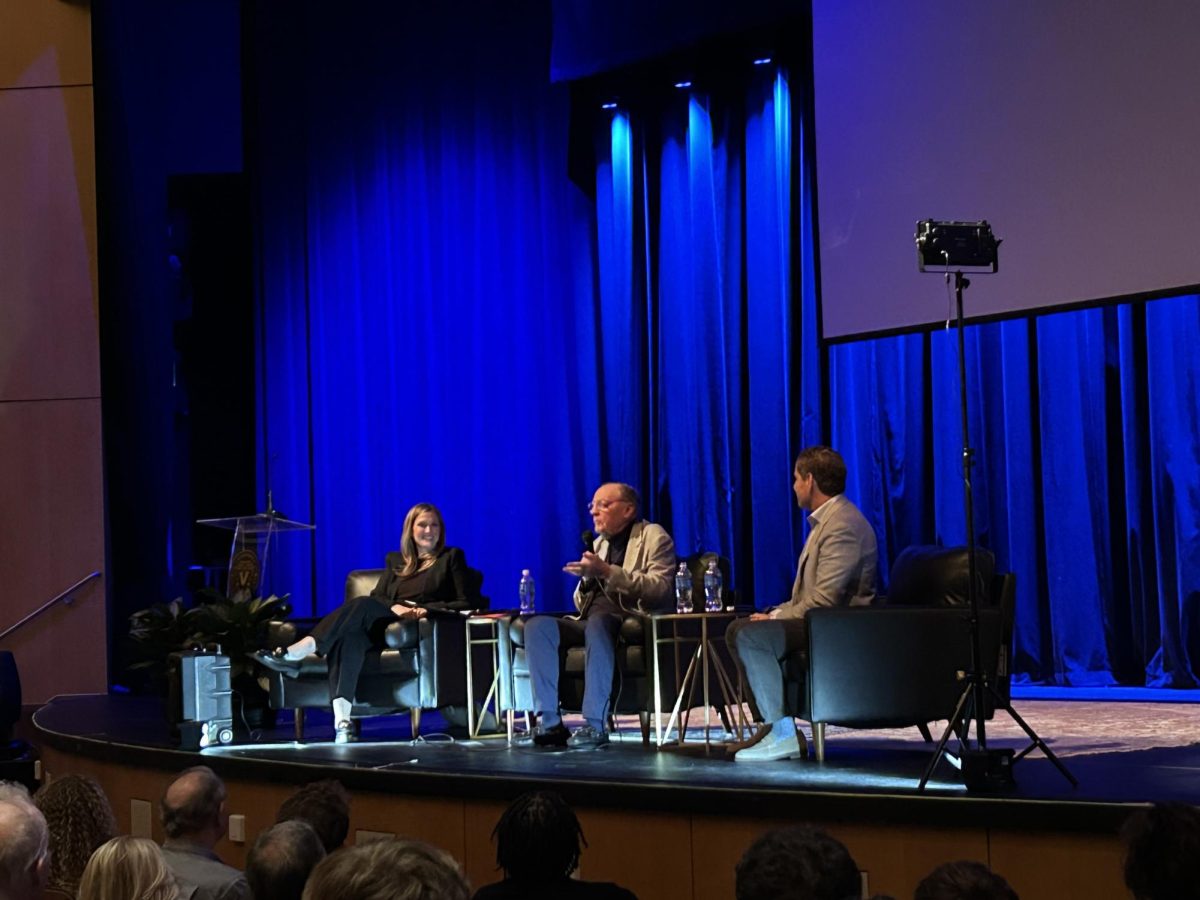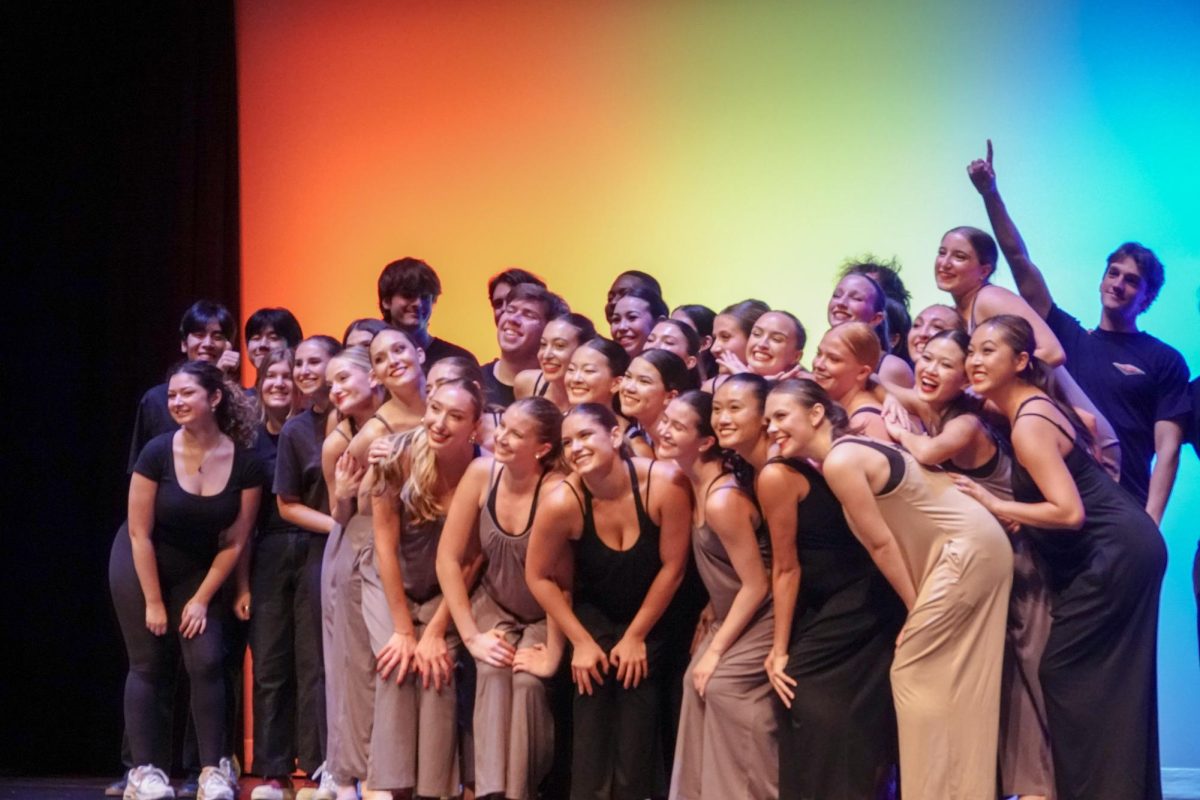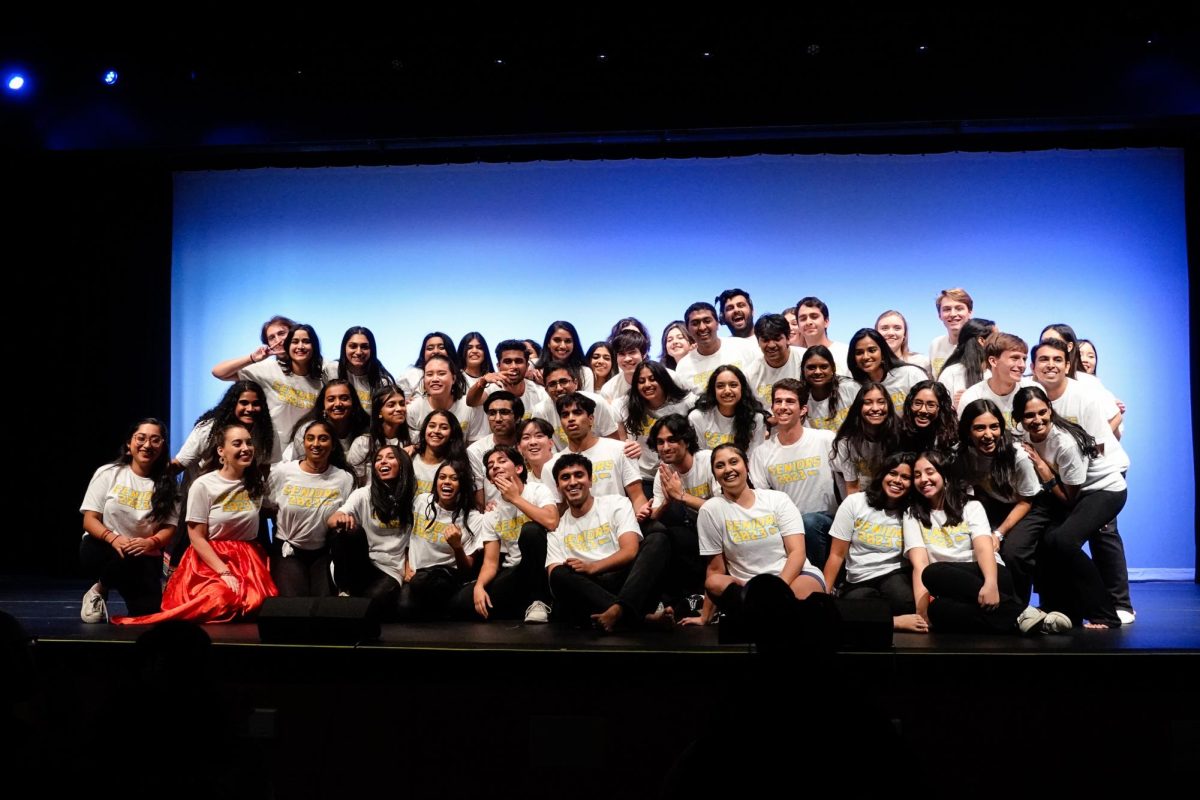The Office of the Chancellor hosted James Patterson (M.A. ‘70) on March 26 in Langford Auditorium to discuss his upcoming book, “Disrupt Everything,” which focuses on adapting to life challenges in the modern age. Associate professor Patrick Leddin, who co-authored the book, joined Patterson onstage, and professor Kelly Goldsmith moderated the panel and the Q&A that followed.
Before the event started, Langford Auditorium experienced a power outage and was left without working stage lights or a sound system for the first 30 minutes of the panel. Crew members provided a microphone connected to a small speaker and a singular light illuminating the trio to allow the event to continue with adjustments. Halfway through the talk, power returned to Langford, and the event resumed as planned.
Introductions
Goldsmith first introduced Chancellor Daniel Diermeier, who briefly spoke about how the event was organized after Leddin invited him to a class about disruption in 2023, where Leddin and Patterson presented their findings from interviewing 350 participants about challenges in their lives. He also acknowledged the influence of the power outage, saying the event’s continuation was an example of “turning each crisis into an opportunity.”
Goldsmith then introduced Patterson, sharing a story about how she listened to all of his books on a road trip through the Southwest and bonded with her daughter over his writing. Patterson then took the stage and discussed his previous Vanderbilt professor, Walter Solomon, whom he said made him a writer.
Patterson shared the story behind “Disrupt Everything,” noting that the power outage was an example of the challenges he wrote about in the book.
“Our lives are full of things like this [power outage], and we have to adapt,” Patterson said. “That’s what this whole book is about, and it’s weird how appropriate this is.”
Patterson then discussed how he believes the age of disruption has arrived, as shown by the effects of artificial intelligence, economic uncertainty and the COVID-19 pandemic on the workplace. He said this era has been furthered by recent changes to government agencies amid the new Donald Trump administration. He also noted that the concept of disruption is rampant in today’s world, and he believes it needs to be harnessed by the general public because it will not be going away.
“Our book, ‘Disrupt Everything,’ is about proactively using disruption for positive change,” Patterson said. “Virtually every company, every employee [and] every student needs to understand disruption and how it can play a part in positive change.”
Panel discussion
Leddin then joined Patterson onstage for their panel, where Goldsmith asked the two about the necessity of disruption. Patterson replied that he sees harnessing disruption as a way of avoiding anger in the modern age, and the only way to deal with a disruptive situation is to take control of it, such as by volunteering at a school event.
“I remember one school we went to, they needed volunteers at the end, and I said, ‘Nothing will happen here unless you want it to,’” Patterson said.
The conversation then shifted to the importance of storytelling, where Patterson argued that the stories in “Disrupt Everything” help illustrate the book’s key points by engaging with readers, given that “buy-in” from an audience is crucial for success in disruptive environments.
“If you want your mission to work, whether you’re running a company, a team or your house, you must get buy-in,” Patterson said.
Before the Q&A began, Goldsmith asked a final question about the power of persuasive communication, to which Patterson told a brief story about his start at the advertising company J. Walter Thompson. Patterson said he sent in several portfolios upon each rejection he had received from the company, changing the material slightly until he was eventually accepted, which he credited as an example of the power of disruption.
Q&A session
The duo answered pre-submitted and live questions from the audience. Topics included whether Trump and Elon Musk would be classified as disruptors, Patterson’s motivation to write books and how to deal with fears while engaging in disruptive activities.
Although Patterson emphasized that he would not take a political stance during the event, he addressed Musk’s mantra of “move fast, break things, rebuild,” which he described from a different perspective.
“My notion is move fast, do something or not repeat, which I think is positive,” Patterson said. “That’s [a] positive disruption to me — move quickly, try it or decide not to try it, repeat and just keep doing that.”
Before concluding the talk, Patterson had one piece of advice for graduating students entering a world filled with uncertainty.
“Don’t be afraid to just stick your foot in the water a little bit. Just keep doing that, act fast and give it a little shot,” Patterson said. “And don’t be afraid. If that doesn’t work, try something else.”
Student reactions
Senior Eric Russenberger said he appreciated Patterson’s talk, especially given the changes caused by the power outages.
“I found it poetic that as they talked about certain things about disruption, simultaneously, the actual event was disrupted in many different ways,” Russenberger said.
Senior Ryan Zurcher was unfamiliar with Patterson’s work before attending the event, but he said he enjoyed his advice and answers.
“I feel like I recognized the name, James Patterson, [but] I didn’t know him super well — obviously he is super well-known,” Zurcher said. “I thought he was a great speaker, really funny and gave a lot of great advice on life, especially as a senior about to go into the real world.”
Similarly to Zurcher, senior Ainsley Gill expressed admiration for Patterson’s speaking ability and engagement with the crowd.
“I really appreciate how engaging [and] how personable he was,” Gill said. “He had a good balance of anecdotes [and] advice, and definitely balanced the stage well — [he] shared [the stage] well with the rest of the presenters.”









